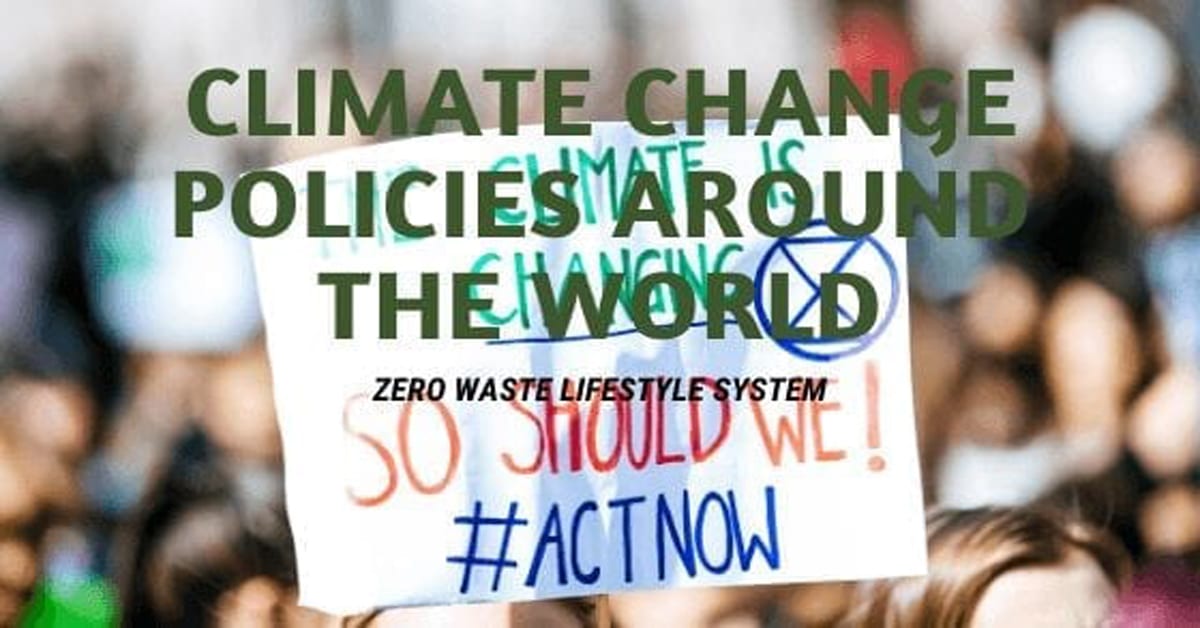“Climate Change Seen as Threat to U.S. Security” – The New York Times
“Global warming has reached a ‘defining moment,’ Prince Charles warns” – The Telegraph
“Five years to save world from climate change, says WFF” – Australian Broadcasting Company
These headlines sure look familiar. After all, climate change (and climate change policies) is one of the primary concerns of the world. It always ensures its place on the news, both on printed and electronic media. But here’s what you may not know: these headlines were from 10 years ago. Why bring this back now?

To answer that question, let us first dig in the roots of all this causes – climate change. Climate change, as how the United Nations describe it, is “the defining issue of our time and we are at a defining moment.” It is characterized by shifting weather patterns that have costly impacts. This includes threatened food production, destructive typhoons and floods, and extreme temperatures. What’s worse, it also is responsible for taking the many lives of species, both endangered and not. It ended many human lives as well.
This global phenomenon has long been our nemesis. According to the renowned National Geographic, climate change started from the mid 20th century, which then, specifically refers to the rise in global temperature. Up to this day, the same issue threatens humanity and the whole world in general. Now here’s another question: Did climate change “change” through time? Has each country implemented climate change policies to respond to our changing world?
The Urgency to Respond to Climate Change in a Country-wide Scale
Just recently, the United Nations called for a conference on climate change known as the UN Climate Change Conference (also called COP25) held last December 3-13, 2019 in Madrid, Spain. For many activists, environmentalists, and leaders, the conference is not just an annual meeting. It is an urgent plea to resonate actions towards the global risk.
This is evident in the overall speech of the speakers, including climate youth activist Greta Thunberg’s. She mentioned how dangerous the additional degree in temperature change can be for the Earth and its inhabitants. Normally, temperature increases per year, but should not exceed 1.5˚C. However in the January 2019 Global Climate Report, the average land-only increase in temperature was recorded 1.51 ˚C. This ranked 4th in the warmest months over the past 140 years. Though it decreased by 0.21˚C in the November 2019 report, risks of global temperature heating is still on the edge.
Because of this, UN Secretary General Antonio Guterres encourages audience for solidarity and flexibility to actually create impact in the battle towards limiting dangerous global warming. As he illustrated our times, he emphasized that today, we are at a “critical juncture.” He further added that this is a point of no return. In other words, the best way to act is now and that it is the only choice.
There is a wide range of efforts put in solving the global dilemma. Holding the UN Climate Change Conference is one, not to mention the many advocacies existing today which are presented in various platforms. The globe seems to be hustling around to put an end to the crisis. However at a closer look, impacts are minimal to nothing at all. Animals are still dying and we are still breathing poisonous gases. Floods and typhoons are still evolving to its extreme. And the glaciers? They are thinner than ever.
The problem does not lie on the global climate change policies. It is on the presence and execution of laws that support this rulings. Leaders have an essential role to perform in that part, but so as with the constituents. They should work harmoniously and create strong implementation of concrete plans in eradicating harmful global heating. Most importantly, they should have a trained mindset ready to combat activities and thinking that selfishly turn to negligence of global efforts towards climate change.
Paris Agreement: Does It Work Out?
An example of the global effort to combat climate change is the Paris Agreement, a treaty adopted in the 2015 UN Framework Convention on Climate Change (COP21). This aims to “strengthen global response to the threat of climate change by keeping a global temperature rise…[below] 1.5 degrees Celsius.” This replaces the controversial Kyoto Protocol which is an effort to lessen the emission of harmful greenhouse gases that contribute to global warming.
The Paris Agreement was deemed momentous due to the 197 countries that signed and the 187 that ratified the treaty. This includes giant industrial countries such as China, the United States and India (three of the four largest greenhouse emissions). China and the United States first refused to participate the Kyoto Protocol, but cooperated this time on the said agreement. Starting November of the following year, the Agreement came to effect.
The accord inspired many countries to seriously deal with climate change. To realize its aims, many industrialized countries started to revise existing policies to further limit the emission of harmful gasses from factories and other human activities. Furthermore, it become an ideal symbol to finally balance the nature. Despite that, this only known ongoing international climate treaty is currently at risk of falling apart. The home of the United Nations who initiated the said treaty, the United States, filed later this year a document which will nullify their support to the treaty. The said plan will take to effect on November 4, 2020. If this influential country withdrawn their accordance with the Paris deal, what will that leave the rest?
Dilemma of Third-World Countries Suffering the Brunt of Climate Change When First World Nations are the Top Carbon Polluters
:no_upscale()/cdn.vox-cdn.com/uploads/chorus_asset/file/13447570/Fig_1_3_The_top_20_emitting_countries_are_responsible_for_roughly_75__of_GHG.png)
Third World countries barely survive to provide their daily needs. Their resources are depleting but most of it are consumed not by them, but by capitalist First World nations. This is not a surprising scenario. In 2017, a scientific report says that consumption of fossil fuels increased by 1300 times fold. This is because of the discovery of other natural sources of energy aside from coal. The 18th to 19th century industrial revolution started this all. The same period the Westerns started to be take over the global economy.
Though the negative effects of climate change is world-wide, poverty makes it even felt by the Third World. For instance, agricultural countries such as the Philippines experiences catastrophic flooding and typhoons. Due to this, crops which are almost ready for harvest turns to trash in an instant. They do not just lost their income, they also lost their food.
On a similar case, Hurricane Maria in Puerto Rico and Cyclone Idai in Zimbabwe brought devastating results. This hampered production of food and destroyed buildings and houses which led to shortage of their basic necessities.
These struggles happen every day and coping up for residents are slow due to the unavailability of funds and equipment to fasten progress. The root of all this causes is climate change, and it should be dealt with. Fast.
Which Countries Have Climate Change Policies?
One of the goals of the Paris Agreement is to involve countries and have concrete actions through passing and implementing climate change policies. In the Climate Change Performance Index results of 2020, selected 61 countries and the European Union were ranked and scored as to how they performed both in the national and international standards. This means that these countries already have existing policies and that many more have national laws, but were not included in the report (such as the Philippines with its Climate Change Act of 2008).
The countries included are Portugal, Finland, Morocco, Sweden, Lithuania, Denmark, China, France, United Kingdom, Latvia, Norway, India, Netherlands, Germany, Luxembourg, and the 28 European Union countries. These 16 are the top performing countries in both the implementation of the national and international climate policies.
The countries such as Croatia, Canada, Italy, Switzerland, Argentina, Islamic Republic of Iran, Greece, Chile, Slovak Republic, Korea, New Zealand, Spain, Cyprus, Kazakhstan, Saudi Arabia and Estonia follows. They have an overall rating of Medium compliance.
Twenty-seven more are on the list, but has a Low to Very Low execution and compliance of the climate change policies, Australia being at the bottom.
Are they effective?
To some extent they are, but continuous coordinated efforts are still required. In the said report, countries like Morocco made notable participation of reducing its energy use. This country is known to be low rated in energy use per capita level. But this year, it landed top due to its bold moves in-lined with the 2030 Energy Use Target.
Comparing the January 2019 and November 2019 Global Climate Report, we have cooled down the Earth a bit through solidarity and flexibility. Every fraction of degree is vital, but it is a result of brave move of countries.
What Can Citizens Do to Push for Climate Change Policies?
There are many ways to show our gust with climate change. If there are already existing policies in our locality, the best way to treat it is by supporting it. It should not be evident only on big events. Rather, it should be reflected even in small tasks.
For instance, though many local communities already banned the use of plastics, many large and small establishments still use them in bagging groceries. Especially in poor, rural places, this situation is still very rampant. If speaking out to officials to bring this call is a bit too bold for you, why not start with refusing plastics in supermarkets? Why not bring your eco-bag?
In addition, a major but significant change in lifestyle should be applied. Go zero waste, support zero waste shops, and upcycle things at home. By doing so, you show concern and love for the planet and for the people.
Conclusion
Climate change is a global phenomenon, and everyone in the world should take part in the endeavors to eradicate that. Supporting national and international climate change policies is a way to do so. Laws without followers are but a piece of written document with no weight. Act now or be forever late. Results may took longer to arrive, but reward is a bright future.





Wow this was an amazing post. Thank you!
Many people believe what they do in their own home won’t make any difference, so they don’t bother recycling, using reusable bags, using actual towels instead of paper towels. It actually makes me crazy the amount of waste one household can create carelessly. Sigh. Thanks for the article! I will try to be even more vigilant!
Turks and Caicos also passed a climate change policy. The passionate environmentalist in me says it’s a real knee slapper. Here’s how the b.s from our lack of attention effects us out on these tiny islands: OUR REEFS are dying. Now one might say “who cares?” Well Turks and Caicos is home to the third largest barrier reef on the planet which is only covered by 2% of coral reefs. Reefs give us food, medicine and protection. Nice going humans. Excellent post. Looking forward to more.